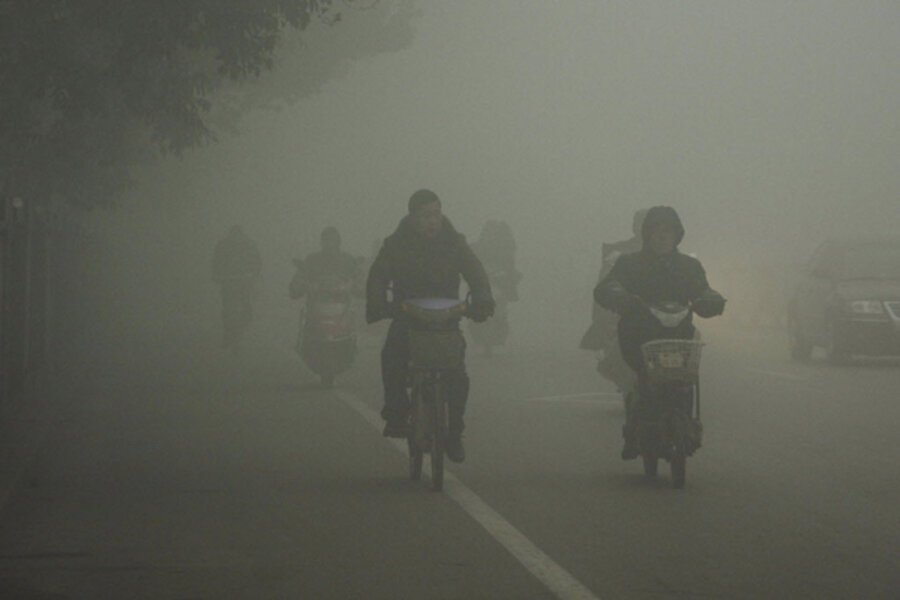Car sales in China hit 20 million, smog levels reach staggering heights
Loading...
The number of vehicles on China's roads continues to grow--and so does the severity of the country's air pollution.
China became the first nation to surpass 20 million new-car sales last year, Bloomberg reports. That represents a 14 percent increase over 2012, and continues its reign as the world's largest car market.
Sales are expected to grow by a further 10 percent in 2014, according to the government-backed China Association of Automobile Manufacturers.
As China is choked by smog and traffic jams, the association believes new-car sales will steadily decline.
While vehicles are far from the only sources of air pollution--industry in general and coal-fired power plants are responsible for the majority of emissions--public pressure to curtail vehicle emissions and address the choking smog may finally be having an effect.
There has also reportedly been a backlash against luxury goods--including cars--since Xi Jinping became head of the Communist Party in November 2012, and made curtailing consumerism a priority.
Last month, the World Health Organization (WHO) found Chinese outdoor air pollution causes lung cancer, and increases the risk of bladder cancer.
In Xi'an--the former imperial capital, known for its ancient terra cotta warriors--smog levels have reached 38 times the WHO safety threshold.
The Chinese government is taking steps to limit emissions, while individual cities are instituting restrictions of their own--including caps on the number of new-car sales.
Last month, The United States announced that it would help China draft stricter emissions standards.
The U.S. will provide technical assistance for a new set of regulations--dubbed China VI--that would lower the acceptable level of sulfur in tailpipe emissions, and require new vehicles to have particulate filters.
The Chinese government has also adopted stricter fuel-economy standards, and is trying to encourage the mass adoption of electric cars.
While the government tries to make future cars cleaner, China's cities are attempting to keep the number of vehicles on their streets under control.
Shanghai-which experienced record levels of smog--is considering a congestion charge, while Beijing will slash car-sales quotas by 40 percent, and plans to scrap 180,000 of its worst-polluting vehicles.
Shijiazhuang--the capital of the steel-producing Hebei province that surrounds Beijing, has introduced its own plan to limit car sales.







